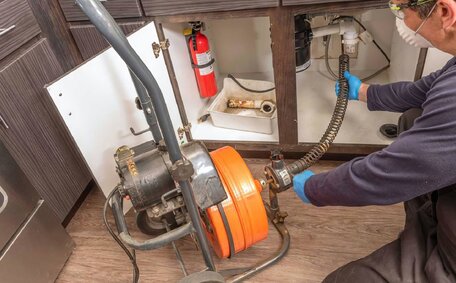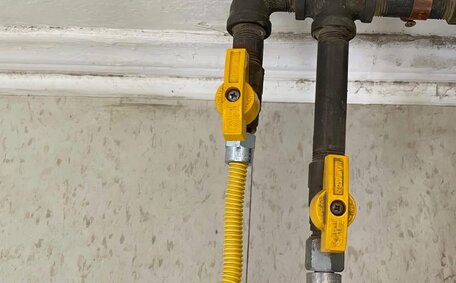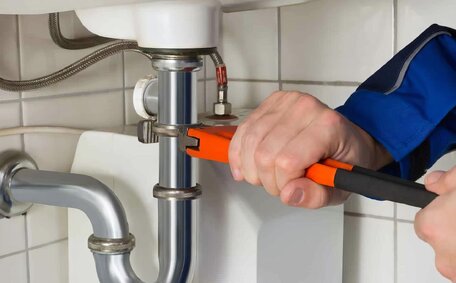The High Cost of Water Leaks and Why Detection Matters
An estimated 35% of treated water globally is lost annually due to leakages in water distribution systems. This causes a significant strain on water infrastructure, equivalent to the annual usage of over 200 million people, leading to costly damage to homes and urban environments. Undetected leaks can result in extensive property damage, substantial economic losses, and environmental degradation.
Advanced smart waterleak sensors can enable early detection and mitigate these impacts. Smart sensors monitor various parameters such as flow, pressure, sound, and temperature, to accurately pinpoint even minor leaks. Real-time alerts from smart water leak sensors, coupled with the ability to engage a shutoff valve remotely, help to minimize water wastage and prevent property damage.
Daily, water leak detection systems tackle leaks that account for nearly 28 billion gallons lost annually in the US, offering actionable data to water utilities and households. Last year, our water management solutions employing IoT technology, big data, and AI proved effective in leak detection and provided constant, reliable monitoring to curb municipal water losses and promote sustainability.
How Smart Sensors Are Revolutionizing Leak Detection
Advanced monitoring capabilities of smart water leak detection systems are transforming the approach to leak detection. Acoustic sensors use sound waves for detecting leaks, even tiny ones, while flow metres track unexpected changes indicating a potential problem. Smart water leak sensors can set new standards in discovering how leaks can affect pipelines and help pinpoint water line issues.
Bhyve smart flood sensors connect to home networks and send instant alerts upon detecting water-related issues. Homeowners can learn more about notifications received straight to their phone, promptly before any major damage occurs. Water companies employ smart technologies, using analytics and AI for efficient leak detection across extensive networks, guaranteeing timely customer notifications to preclude potential damage.
Our analysis revealed that advanced acoustic sensors installed in fire hydrants can identify leaks as small as 17 litres per minute. Smart leak sensors facilitate early and accurate leak detection, conserving water resources and providing homeowners insights on preventing property damage and driving sustainability.
Key Smart Water Monitoring Technologies
The Flo Moen Smart water monitor employs IoT, machine learning, and AI for quick leak detection and preventative measures.
Crucial technologies comprise sensors that monitor temperature and humidity changes, which are essential for detecting water leaks:
- Low Power Wide Area Networks (LPWAN): Allow sensors to monitor pressure flow, have battery lives up to 10 years and provide extensive coverage.
- Acoustic sensors: Identify leaks through sound frequency monitoring and analysis.
- Flow metres: Track unexpected flow changes indicating potential leaks.
- Moisture sensors: Pinpoint plumbing issues and leaks.
- Temperature sensors: Can detect anomalies suggesting leaks.
Linking a network of devices, including smart sensors through IoT systems, these devices assist facility managers by alerting them to water issues via intelligent measurement analysis. This enables accurate detection location of even small leaks, which can provide prompt alerts to utilities and your home.
The integration of LPWAN, analytics, and AI equips smart water systems with continuous monitoring, rapid leak detection, fewer false alarms, and automated prevention of water wastage and damage.
Printed Sensors and Sensor Cables for Surface Monitoring
Fiber optic sensors and water leak sensor cables offer innovative solutions for monitoring water pipes to detect leaks along surfaces. These thin, flexible sensors serve as both a water leak detector and a flood sensor that can be easily installed under tiles, behind walls, and along pipes to detect moisture.
Key benefits include:
- Low cost - Economical flood sensors, in the form of printed technology, are cost-effective to fabricate and install.
- Easy set up - Sensor cable can be mounted effortlessly to surfaces using simple adhesive methods.
- Extensive coverage - Long sensor cables can monitor large areas.
- Rapid leak detection - Sensors identify moisture immediately.
- Damage prevention - Early notice can prevent extensive water damage.
Finely-tuned smart flood detection systems with sensor cables are shown to identify over 93% of leaks, an impressive performance when monitoring only 5% of a building’s facade. Combined with smart water systems, these sensors can promptly address leaks water occurrences, enabling automated shutoffs to prevent wastage and flooding.
Printed sensors offer cost-effective, extensive water leak monitoring for households, supporting proactive water management in smart buildings. Their minimal aesthetic impact positions them as much more than just practical; they’re ideal for widespread adoption in both new and existing smart building plumbing frameworks.
IoT-Enabled Moisture and Flow Meters
Moisture sensors and flow meters integrate with IoT platforms, connecting to smart home systems and offering compatibility with Alexa and Google Assistant. This empowers real-time monitoring and automated leak detection, with the added convenience of Alexa and Google Assistant voice commands.
IoT-enabled Flo Moen moisture sensors and flow meters function by:
- Measuring water flow rates and identifying abnormal changes indicating leaks.
- Detecting water and identifying areas where its presence indicates a potential issue.
- Linking sensor data to the home’s wifi hub and wider networks via IoT protocols like ZigBee, Z-Wave or Thread.
- Transmitting data to smart home controllers and the cloud for analysis.
- Triggering alerts and other actions like water shutoff when leaks occur.
Integrating these sensors into broader smart home ecosystems enables comprehensive water monitoring and conservation. Homeowners can manage leaks effectively, accessing real-time water usage stats on smart home dashboards and receiving quick alerts for leaks or burst pipes to prevent potential severe damage.
IoT-enabled moisture and flow sensors combine precision, connectivity, and automation for comprehensive leak prevention and water management.
Smart Shut-Off Valves and Monitoring Systems
Smart shut-off valves, among our top plumbing solutions, automatically halt a home’s water flow upon leak detection. These valves connect wirelessly to smart water monitoring systems, receiving signals to halt water flow if sensors detect moisture where it should not be.
Key benefits of smart water leak detectors include:
- Rapid leak response - Valves react within seconds of a sensor detecting a leak.
- Water damage prevention - By halting flow, shut-off valves make sure to prevent flooding from bursts or leaks.
- Water conservation - Automated shut off saves significant volumes of litres of water per day from being lost through unidentified leaks.
- Enhanced leak detection - Shut-off valves bolster monitoring systems by enabling flow cessation once leaks are spotted.
Smart shut-off valves offer an automated first line of defence for water systems, seamlessly integrating with smart sensors, flow meters, and pressure monitors. As an example, a system could use a moisture sensor to identify a hot water leak, trigger a smart valve shut-off, and send homeowners an alert simultaneously to prompt repairs.
With capabilities like controlling water supply through thermal imaging in a smartphone app, smart shut-off valves provide homeowners with peace of mind, especially while travelling. Homeowners can manually activate moen smart water valves to reduce leakage risks, gaining control over how much water is used while they are away.
Tips for Optimal Sensor Placement
Strategic sensor placement is crucial for an effective leak detection system that offers comprehensive monitoring within a home. When determining locations to detect leaky pipes, consider the following factors:
- Areas of high water usage - Kitchen, bathrooms, laundry, etc. are common leak hotspots.
- Behind appliances - Refrigerator water lines, dishwashers, washing machines.
- Near plumbing fixtures - Sinks, toilets and pipes prone to condensation.
- Within WiFi range - Sensors need connectivity to communicate readings.
- Accessibility - Ensure sensors can be easily accessed for battery changes.
- Complimentary positioning - Spread sensors to cross-reference readings.
For thorough monitoring, distribute a mix of contact, non-contact, and cable sensors based on usage patterns and leak likelihood. Focus additional water leak detectors in high-risk areas and use smart water shut-off valves for rapid leak reaction.
Integration With Smart Home Platforms
Smart leak detection systems are designed to mesh with prominent smart home platforms including Amazon Alexa and Google integration, offering seamless centralized management. This enables homeowners to monitor water consumption, receive leak alerts, and activate automated responses by interacting with Alexa Google Assistant or other smart devices.
Key capabilities include:
- Real-time monitoring via smart displays and apps
- Voice control for on-demand status updates
- Notifications of leak alerts and high usage events
- Ability to trigger water shut-off using voice commands
Smart home ecosystem integration ensures that premier smart leak detection systems offer complete home water management and conservation. Homeowners can check for leaks, track consumption patterns, and configure leak reaction preferences all from their smart home system.
Smart water technology encourages adoption, with integration simplifying access via familiar smart home interfaces. With Google Assistant and Alexa connectivity, detecting and responding to leaks becomes a standard smart home capability alongside lighting, climate control, security and more.
The Future of Smart Water Leak Technology
The future of smart water technology, key in managing the water climate and adaptation, is bright with expected advances in IoT sensors, artificial intelligence, and data analytics.
Key developments on the horizon that this system can offer include:
- Enhanced sensors capable of higher sensitivity, ensuring rapid detection and accurate location of even minuscule leaks
- Expanded implementation of leak detection networks that are fitting for smart cities and their utilities
- Advanced edge computing bringing real-time analysis closer to the sensors
- AI and machine learning algorithms that self-improve analysis and reaction time
- Total home oversight integrating leak tech with smart home platforms
- New form factors like flexible thin-film sensors to monitor odd spaces
- Blockchain-enabled sensor data validation and authentication
- Standardisation of communication protocols between devices
As costs fall and technology matures, a smart leak solution can be even more valuable, potentially preventing leaks that are far more expensive than the technology itself, offering peace of mind across the sector. They may also help builders meet sustainability goals and give homeowners peace of mind.
Accelerating tech innovation and the need for water conservation are driving smart leak technology from a novel idea to a crucial component in efficient and resilient water management.






